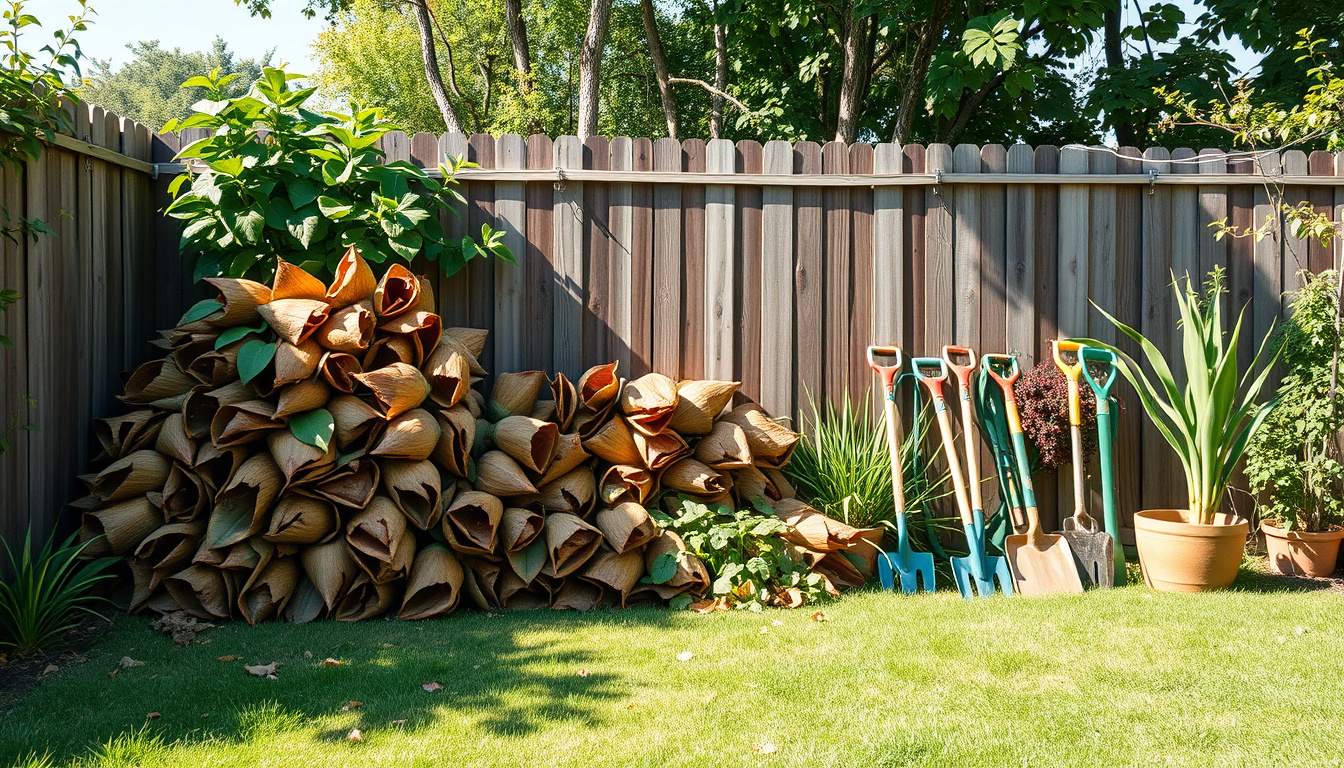Maintaining a pristine and healthy lawn involves more than just regular mowing and watering; managing yard debris plays a crucial role in upholding your outdoor space’s beauty and health. Yard debris — comprising leaves, twigs, grass clippings, and other garden waste — can quickly clutter your yard, attract pests, and hinder the growth of your lawn. This article offers effective tips for managing yard debris and keeping your lawn tidy, ensuring your outdoor space remains inviting and well-maintained.
Understanding Yard Debris and Its Impact
Yard debris accumulates naturally as part of the garden lifecycle. Falling leaves, pruned branches, and seasonal grass cuttings all contribute to the pile of yard waste. While some debris, like fallen leaves, can provide nutrients for your soil if composted properly, unmanaged yard debris can lead to several issues:
- Smothering grass and plants
- Creating habitats for pests and insects
- Promoting mold and fungal growth
- Obstructing drainage, leading to water pooling
- Detracting from the visual appeal of your yard
Effective yard debris management involves not just removal but also recycling or repurposing waste to benefit your garden.
Practical Strategies for Managing Yard Debris
- Regular Yard Cleanup Schedule
The cornerstone of yard debris management is consistency. Creating a routine for clearing debris—weekly or biweekly—prevents accumulation and makes cleanup more manageable. During heavy leaf fall seasons, consider increasing the frequency to maintain a tidy yard.

- Use Proper Tools
Invest in essential tools designed for debris collection:
- Leaf rakes with flexible tines
- Lawn and leaf blowers
- Garden waste bags or compost bins
- Pruners and shears for branches
Using appropriate tools speeds up the cleanup process and reduces physical strain.
- Compost Organic Yard Waste
Instead of discarding yard debris, composting offers a sustainable solution. Organic waste such as leaves, grass clippings, and small branches can be turned into nutrient-rich compost that enhances your soil health. Remember to balance green (moisture-rich) and brown (dry and woody) materials for optimal composting results.
- Repurpose or Dispose Responsibly
Some yard debris can be repurposed creatively:
- Leaves can be used as mulch around plants
- Small branches and twigs sold as firewood or kindling
- Large branches might be used for DIY garden projects
For larger debris or excessive yard waste, utilize municipal yard waste pickup services or take debris to local composting facilities.
- Mulching for Lawn and Garden Health
Mulching involves chopping leaves and grass clippings into fine pieces that fall around plants, helping retain moisture and reduce weeds. Mulch also gradually decomposes, enriching the soil with nutrients.
- Implement Yard Waste Bins or Compost Bins
Designate specific bins for yard debris collection or set up a compost bin in your yard. This organized approach simplifies debris collection and promotes composting, reducing landfill waste.
- Employ Professional Yard Cleaning Services
If managing yard debris becomes overwhelming, hiring professional yard cleanup services can be a cost-effective and efficient solution. Professionals have the equipment and expertise to handle large debris or extensive yard maintenance.
Benefits of Proper Yard Debris Management
Managing yard debris effectively offers multiple benefits:
- A cleaner, more appealing lawn
- Improved soil health and plant growth
- Reduced pest habitats
- Enhanced water drainage
- Environmental sustainability through composting
By staying on top of yard debris, homeowners can maintain a lush, inviting outdoor space that’s safe and enjoyable for family and friends.
FAQs About Yard Debris Management
Q1: How often should I clear yard debris to keep my lawn healthy?
A1: It’s recommended to clear yard debris at least once a week during peak seasons like fall when leaves fall abundantly. More frequent cleanup may be necessary after storms or during peak grass growing periods.
Q2: What’s the best way to compost yard debris?
A2: The best composting method involves layering green materials (grass clippings, leaves) with brown materials (twigs, shredded paper), turning the compost regularly, and maintaining moisture. Properly managed compost turns yard debris into nutrient-rich soil amendment.
Q3: Can yard debris attract pests? How do I prevent this?
A3: Yes, unmanaged yard debris can attract pests like rodents and insects. To prevent this, regularly clear debris, avoid piled-up wet leaves, and use compost bins with proper airflow.
Cite an authoritative source:
The Environmental Protection Agency emphasizes the importance of yard waste composting as part of waste reduction and recycling efforts (source).
Conclusion: Take Action to Keep Your Lawn Tidy and Healthy
Effectively managing yard debris is a vital aspect of maintaining a beautiful, healthy lawn. Regular cleanup, composting, and smart disposal methods not only improve your yard’s appearance but also contribute to environmental sustainability. Don’t let yard debris clutter your outdoor space—adopt these effective tips today to enjoy a lush, tidy, and welcoming lawn. Start implementing a routine and consider professional help if needed; your perfect outdoor retreat awaits.
Junk Guys San Diego
Phone: 619-597-2299
Website: www.junkguyssd.com
Email: junkguyssd619@gmail.com
